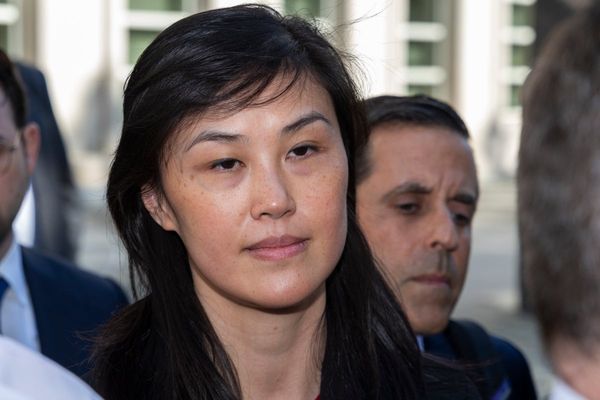
The boards that oversee England’s national parks are bloated, dominated by men and are severely lacking in diversity, a Guardian analysis has found. The analysis also found that farmers outnumber conservation experts by two to one, nature is rarely on the agenda at board meetings and only one national park can account for the ownership of all the land it covers.
Campaigners said a major overhaul of how national parks were governed was “fundamental” to the recovery of nature in the parks and to serving the public, for whom they were set up.
England’s 10 national parks cover 10% of the country and should be key to addressing the nature and climate crisis. However, the state of nature inside the parks, which are largely privately owned, is often worse than outside.
The Guardian analysis found that 70% of the 225 members of the parks’ boards were men, with the proportion of women varying from 11% on the board of the Broads national park to 42% for the South Downs.
Seven of the 10 parks have no non-white minority ethnic board members, with just four among the 225 members (1.7%). Across England 18% of the population belong to a minority ethnic group.
There are also 30 farmers on the boards, twice as many as the number of conservation or ecology experts, and six of the conservation experts sit on the board of a single national park, the Broads. Three national parks have no conservation experts – Dartmoor, Northumberland, and Yorkshire Dales – but all have at least one farmer.
National park board members decide the strategic direction of the organisation and three-quarters are appointed by local councils. The other quarter are appointed by the secretary of state for environment, with the intention of representing the national interest. The parks were set up for the nation 75 years ago by the postwar Labour government.
The number of board members for each park varies between 15 and 30 people and the total of 225 oversee the use of a combined £54m annual budget provided by the government. By comparison, Natural England, the government’s natural environment adviser, has a budget of about £200m and a board of 15 members.
Dr Rose O’Neill, the chief executive of Campaign for National Parks, said an overhaul of the boards was “fundamental” to ensure that nature could recover. “The boards must represent the public that they serve.” She said they must be smaller and have the expertise needed.
“The state of nature in national parks is an embarrassment in many ways on a world stage,” she said. The UK has only half of its biodiversity left, putting it in the bottom 10% of the world’s countries.
The nature campaigner and author Guy Shrubsole also urged board reform: “National parks are not just local parks for local people.”
Jayne Butler, the executive director of National Parks England, which represents all the parks, said: “Locally appointed members, who we effectively have no control over, are probably unsurprisingly going to represent the demographic of the areas which they come from. We get many brilliant people who come as secretary of state appointees, but there is a lot of work needed to be done around how we recruit different people into those public appointments.”
On diversity, the Guardian received responses from eight of the 10 national park authorities. Several said they wanted greater diversity on their boards but emphasised they did not control the appointments and only one said they monitored board diversity for gender and disability.
One national park board, Yorkshire Dales, voted to reduce its size from 25 to 16 in 2020 in what a spokesperson called “turkeys voting for Christmas”. But a local government reorganisation meant the plan was not implemented.
Another park, South Downs, said: “We previously used an external agency to help put forward a strong field of diverse candidates. Unfortunately, none of these candidates were chosen by the secretary of state.” South Downs has co-opted two members to the board to increase diversity, but they cannot vote.
Marlon Patrice, founder of We Go Outside Too, which works to help black community members in the West Midlands engage with nature, said: “Representation is crucial in national parks. It’s imperative to include those who embrace diversity in outdoor space.”
The Guardian made freedom of information requests to all park authorities but only one, North York Moors, was able to detail the ownership of 100% of the park; nine were able to state the ownership of very little of their land; and one, Dartmoor, provided no data at all.
The Guardian also analysed the agendas of the last three full authority meetings for all 10 of England’s national parks. An agenda item specifically related to nature appeared in only seven of the 30 meetings and four park boards had no nature-related agenda items at all.
O’Neill said polling had shown the public wanted nature-rich and wilder national parks: “But some of the boards seem out of step with this: a very small amount of their time and resources is given to nature recovery.”
Ministers were told the boards were “bloated”, “poor” and “deeply unrepresentative” in a 2019 review. However, no action was taken by the Conservative government. Julian Glover, the author of the review, said: “The last government only paid lip service to our review. So this is a test for the new government: will it provide the leadership and resources for protected landscapes to do far more for nature and people?”
A spokesperson for the Department for Environment, Food and Rural Affairs (Defra) said: “We will consider improving how our protected landscapes are governed so they can better contribute to this effort. We want to ensure the legacy we leave for generations to come includes everyone.”







